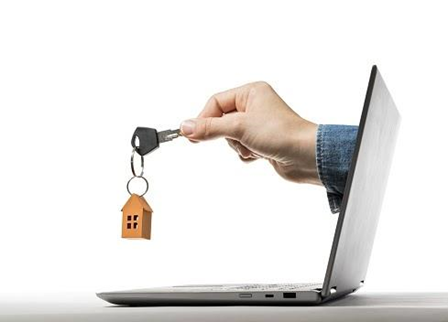There are many ways technology can help landlords serve their tenants better regarding real estate. But while smart homes and appliances can help make your tenants happier, they don’t necessarily make your job easier. Thankfully, some tools can do both.
If you’re new to modern real estate technology and would like to know more about the concept, then congratulations. You’ve stumbled on the best beginners guide to automated rental management platforms. We’ll get into the nitty-gritty of what a rental management platform is and what you stand to gain by including it in your business. Additionally, we’ll outline what you should look out for if you decide to get one. Let’s get started.
What is a rental management platform?
To keep it simple, a rental management platform is a comprehensive software application that makes the day-to-day running of property easier. Hence the reason people often use the term interchangeably with rental management software. But either label works, as long as you’re referring to the improved efficiency of operating a rental property using an IT program.
However, that doesn’t mean all IT solutions make the cut. For example, you could use iCloud technology such as Google Drive to store vital documents. But that doesn’t make your Drive a rental management platform. A key feature of a rental management platform is a comprehensive tool that can help you in many landlords’ duties. Thus, a software that lets you follow-up tenants’ complaints, monitor maintenance, track rent, and keep your books–all at the same time, fits the mark. In other words, it is an all-in-one property management software.
What are the benefits of a rental management platform?
- Increases accessibility
One of the best things about property management platforms is that they are often online solutions, so you can access them on the web using a computer. Some apps are even available on your mobile devices. That means you can easily fit anything you need to know about your property in your jeans’ pocket. It doesn’t matter if you have one property or ten properties. You can easily manage them all on the go.
- Save more time and energy
Another great thing about using rental management software is that it quickly eliminates routine tasks from your daily schedule. For example, you can skip manually inputting and adding every cent you spend on managing your properties. Automated record keeping can add ongoing expenses like taxes with intermittent maintenance costs and give you an accurate balance. So, you save a ton of time and reduce your margin of error in the end.
- Improve tenant communications
Some people might think that management platforms are only for keeping track of numbers. On the contrary, they can also improve your communication with your tenants. Keeping all your vital records and information in one place makes tracking and organizing tenants easier. Through automated reminders, you can see who is yet to pay at a glance. You can also set up a communication channel through a tenant portal that helps you monitor complaints. From screening to move-in inspections, there are so many ways management software can help you serve your tenants better.
What should I look out for in a Rental management platform?
- Tenant management
A solid rental management platform will help you keep track of your tenants. After all, they are the ones you aim to satisfy. Look out for software that supports tracking tenant information, screening process, inspection reports, and so on. Additionally, you could look out for platforms that make communicating with your tenants easier. If your renters are tech-savvy and can operate the app’s portal, that’s one more thing you can manage in one place. Another great feature would be if it lets you keep tabs on empty leases, so you know how many vacancies you have.
- Financial accounting
One of the primary benefits of a rental management platform is making finances a breeze. Automated accounting can save you from errors and stress, so good software should provide that service. You should be able to track rent, input expenses, and get a comprehensive data analysis of your monthly accounts.
- Real-time data
As we highlighted earlier, one of the benefits of a management platform is its accessibility. However, the essence of being accessible is defeated if the information the software displays is not up-to-date. It could impair your decision-making process if you’re not getting real-time data.
Moreso, the ideal rental management platform should also make it easy for you to backup and save your data. That way, if your device crashes, you don’t have to start from square one.
- Pricing
There’s no point in finding a rental management platform that breaks the bank. Great software should help you save time and money, not drain your account. So compare the bottom line of various platforms before opting for one. Are their services reasonable for what they’re offering? Can you subscribe for monthly payments or opt for a one-off transaction. Feel free to take advantage of the applications that offer free trials.
Conclusion
There you have it! The perfect beginners’ guide to automated rental management platforms. Hopefully, this article sheds some light on dark areas and clears up any misconceptions you might have.
Adopting an automated rental management platform in your business can be a time and money-saving move. There are several ways to make you a more efficient landlord. By helping you keep closer tabs on everything from everyday expenses to critical pending repairs, you can satisfy your tenants better. That means you can reduce turnover rates and maximize your profits.
It’s okay if you still feel like a fish out of water. Even when you understand the basics, property management platforms can still be hard to navigate. But there’s no need to worry; highly-rated property management companies often offer full-service management. So they can be beneficial in running your business.


